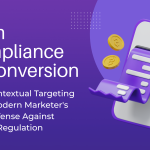Turning an idea into a thriving enterprise is a journey that transforms both the business and the entrepreneur. For first-time founders, this path is filled with unknowns, hard-earned lessons, and critical decisions that shape their future. With no roadmap and limited experience, they must rely on instinct, learning, and adaptability to navigate.
Entrepreneurship unfolds in stages—each demanding different skills and perspectives. Some moments test resilience; others call for sharp innovation. This article traces that progression, mapping how a single idea can evolve into lasting impact.
Establishing the Foundation: Key Considerations at the Outset
The journey begins long before the launch. It starts with a question: What problem needs to be solved? Often, first-time entrepreneurs identify a gap based on personal frustrations, market inefficiencies, or shifting consumer trends. While the initial idea may be born out of instinct, validating it requires careful observation, inquiry, and early feedback.
Understanding the potential customer is essential. Who will benefit from this product or service? What alternatives currently exist? How are current needs unmet? These questions form the basis of problem-solution alignment.
Research becomes the entrepreneur’s compass. This includes market size analysis, competitive audits, and cost estimations. No plan should move forward without some form of due diligence. Importantly, early-stage research also raises awareness of the regulatory, operational, and technical hurdles that may arise later.
Preparing for Launch: Planning and Structuring the Business
One of the most pivotal phases in an entrepreneur’s journey is setting up the structural and operational groundwork. This is the moment when strategy begins turning into reality. Knowing how to start up a small business goes beyond paperwork—it involves thoughtful planning of every component that supports the venture’s operations and growth.
Legal and administrative considerations must be tackled early. Choosing the appropriate business entity—such as a sole proprietorship, partnership, or corporation—can significantly impact tax obligations, personal liability, and long-term scalability. Additionally, entrepreneurs must secure necessary licenses, register trademarks if applicable, and create contracts that protect their work and relationships.
Financial planning stands as a cornerstone of sustainability. First-time founders should develop a working budget, forecast cash flows, and determine capital needs. For those not bootstrapping, securing external funding through personal networks, angel investors, or small business loans requires a clear articulation of the venture’s potential and risks.
Platforms like Keys to the Vault, which offer specialized courses on business fundamentals and strategic execution, can be instrumental during this stage. By equipping entrepreneurs with practical knowledge on financing, structuring, and growth strategies, such educational resources serve as invaluable guides through the intricacies of business launch preparation.
Product Validation: Listening to the Market
No idea, however compelling, survives without real-world relevance. For this reason, product validation is an indispensable stage. The entrepreneur must transition from theoretical planning to testing market assumptions. This could take the form of prototypes, beta versions, pilot programs, or minimum viable products (MVPs).
The goal is not perfection but feedback. Early adopters provide invaluable data about usability, desirability, pricing, and performance. Their responses—both qualitative and quantitative—help refine the offering before a wider release. More importantly, they expose blind spots that might otherwise remain hidden until it’s too late.
This stage requires humility. It may reveal that the original concept needs adjustment or even a complete pivot. Entrepreneurs who resist feedback risk building a product that no one needs. In contrast, those who embrace iterative improvement can create something deeply aligned with user expectations.
Building the Team and Culture
Once the product or service begins to gain traction, the entrepreneur must shift their focus from solo execution to collaborative growth. Building a strong team becomes a necessity rather than a luxury. This includes not only hiring for skills, but also for alignment with the company’s mission and values.
Team dynamics in a startup are often more intimate and fluid than in established firms. Each member wears multiple hats, and communication is constant. In such environments, culture is not defined by policies—it emerges through daily behavior, decision-making, and the shared challenges that arise. Therefore, it must be nurtured intentionally.
Leadership becomes a test of emotional intelligence. The entrepreneur must balance vision with empathy, and direction with listening. This means creating psychological safety, fostering accountability, and offering recognition. A thriving culture is not only good for morale—it also drives productivity and innovation.
Scaling with Purpose
Growth is often seen as the ultimate goal, but scale without direction can lead to chaos. The real challenge for entrepreneurs is scaling purposefully. This involves systematizing processes, expanding the customer base, and possibly entering new markets—all while preserving the core essence of the business.
Operational efficiency becomes crucial. As transaction volume increases, systems must support fulfillment, customer service, billing, and other related tasks. Automation and documentation play a larger role here, enabling consistency and reducing errors.
Customer support must also evolve. A growing customer base means more inquiries, feedback, and potential issues to address. Establishing support protocols, CRM systems, and feedback loops becomes vital in maintaining trust and loyalty.
Navigating Setbacks and Sustaining Momentum
Every entrepreneurial journey encounters friction. Whether it’s a supply chain disruption, customer dissatisfaction, team conflict, or economic downturn, setbacks test both the business and the entrepreneur’s mettle. The key is resilience—not merely enduring difficulty, but adapting and responding constructively to it.
Successful entrepreneurs practice reflective thinking. They review what went wrong, why it happened, and how similar situations can be prevented. This habit of learning transforms failures into tools for long-term success.
Burnout is another significant risk. The energy and hours required to grow a startup can become overwhelming. Recognizing the need for balance, rest, and personal support is not a weakness but a necessity for sustainable leadership.
As the business matures, the founder’s role must also evolve. From day-to-day execution, the focus gradually shifts to strategic direction, industry influence, and mentorship. Impact is defined not just by financial return, but also by community contribution, job creation, and legacy.
In the life of a first-time entrepreneur, the distance between an idea and its impact is not measured solely by time—it is measured by growth, insight, and the ability to navigate uncertainty. The process transforms the individual as much as it shapes the venture. While the terrain may be unpredictable, those who commit with clarity, humility, and vision can craft something far greater than profit: a purpose-driven enterprise that leaves a mark.
Lynn Martelli is an editor at Readability. She received her MFA in Creative Writing from Antioch University and has worked as an editor for over 10 years. Lynn has edited a wide variety of books, including fiction, non-fiction, memoirs, and more. In her free time, Lynn enjoys reading, writing, and spending time with her family and friends.















